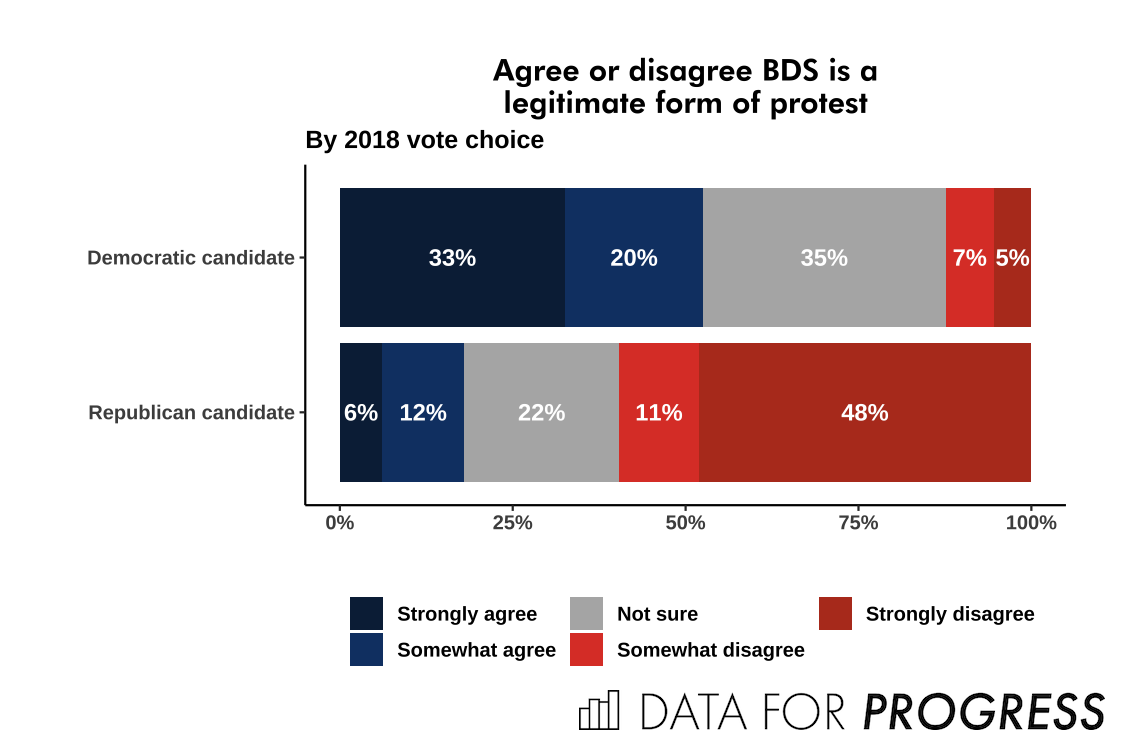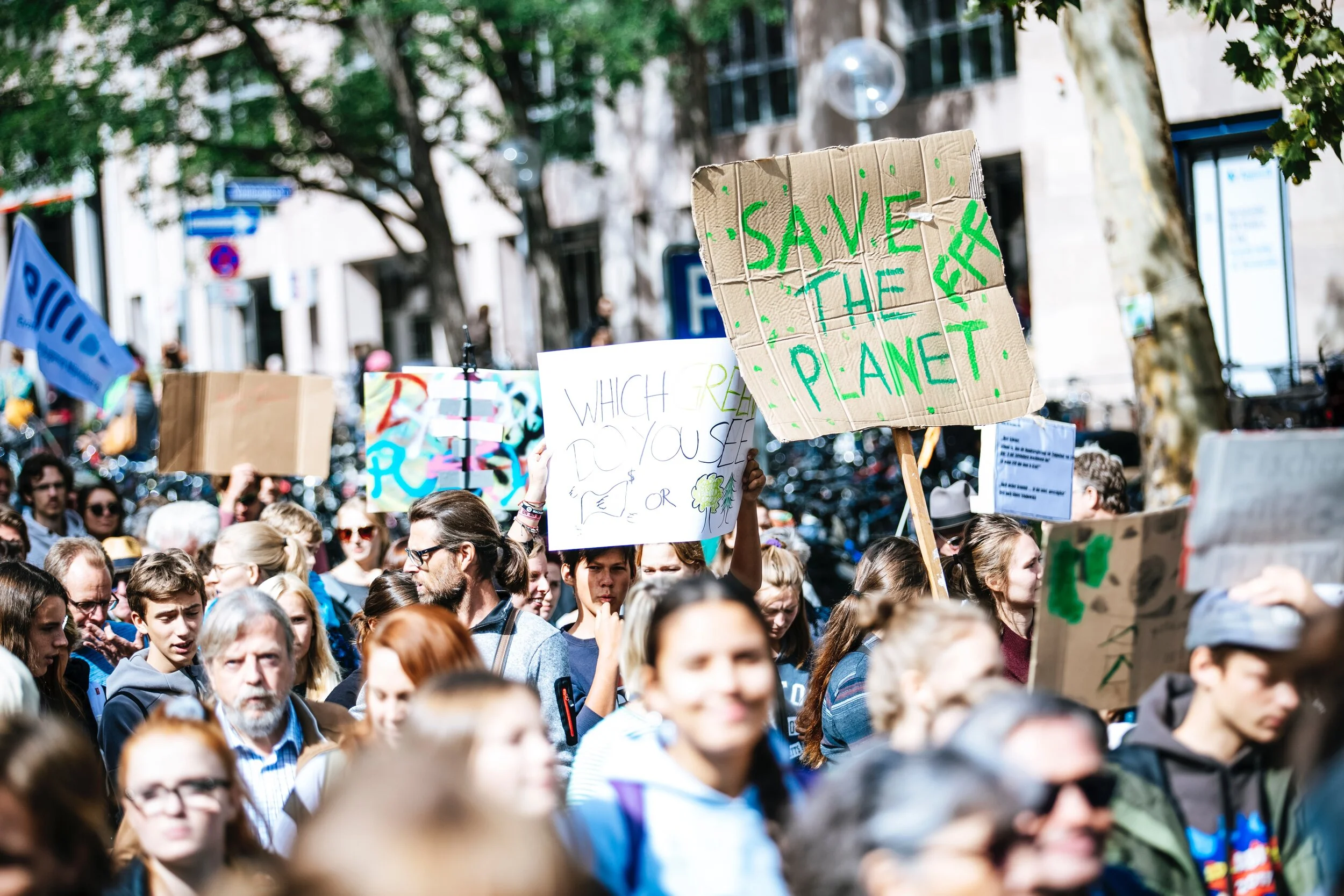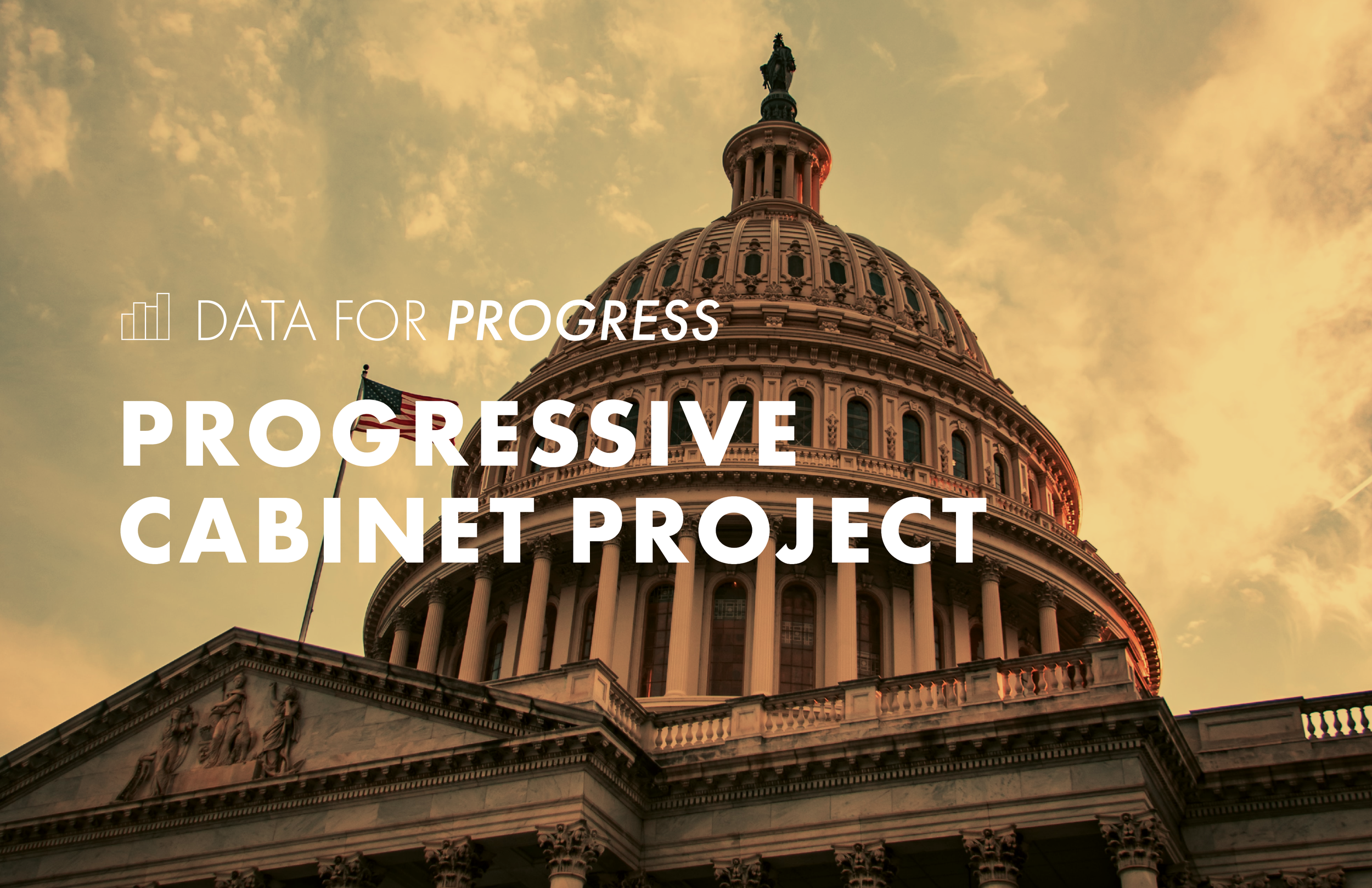Memo: BDS and anti-boycott laws
By
Emma Saltzberg, Senior Fellow - Data for Progress
Executive Summary
Boycott, Divestment, and Sanctions (BDS) is a global, grassroots movement responding to a call from Palestinian civil society organizations to pressure Israel to recognize and honor Palestinian rights through nonviolent economic and cultural means.
BDS has also drawn intense focus from opponents. Starting in 2014, bills designed to penalize boycott supporters have been introduced in state legislatures across the country.
What do voters think about boycotts, BDS, and anti-BDS laws? From September 13 through September 16, 2019, YouGov Blue conducted an online poll for Data for Progress of a national sample of 1,006 US voters. We asked a set of questions about voters’ support for boycotts in general and BDS in particular; we also asked whether voters see boycotts and BDS as legitimate forms of protest.
Voters overall oppose BDS, 35 percent to 27 percent. Among Democratic voters, 44 percent support BDS and 15 percent oppose it.
Voters also oppose anti-BDS laws, 36 percent to 27 percent. Democratic voters oppose anti-BDS laws, 48 percent to 15 percent.
A plurality of voters say BDS is legitimate (36 percent), compared to those who say it is not (31 percent). A majority of Democratic voters say BDS is legitimate (53 percent).
Between 33 percent and 38 percent of voters responded “not sure” to questions about BDS, a proportion that is unusually high relative to DFP’s polling on comparable issues.





